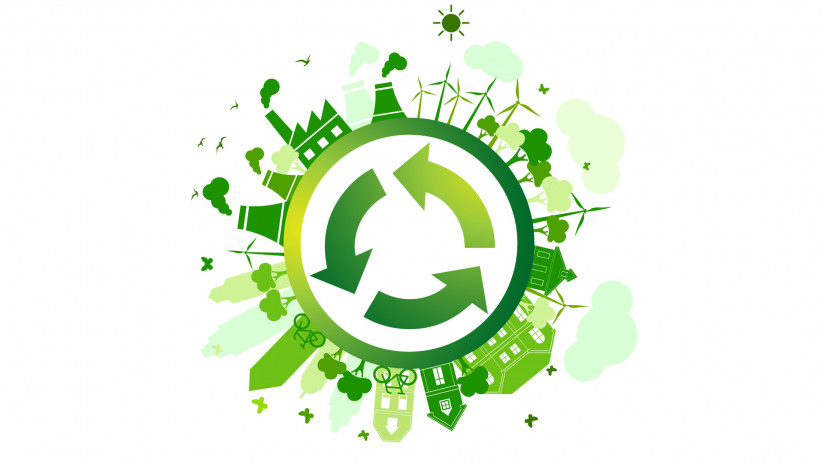The graduates of the "Young Economists" training of the Institute for Democratic Initiatives (IDI) have prepared a policy paper on solid household waste processing in Azerbaijan.
The first section of the study examined the benefits of solid waste treatment. According to the legislation of Azerbaijan, household waste is classified as objects, substances and materials generated in residential areas as a result of the life activities of the population. It should also be taken into account that some household waste, for example, aluminum cans, metals, glass, etc. can also be considered a usefully renewable source of raw materials through conversion to energy and composting through reprocessing or recovery operations. However, large volumes of solid waste are disposed of in landfills due to low costs and availability of ready-made raw materials. Biodegradable components of solid waste in landfills release methane, a greenhouse gas 23 times more potent than carbon, and cause significant environmental problems. Other components can cause serious pollution in air and surface water and spread bad odors to surrounding areas. In this regard, household waste processing can prevent these problems from occurring.
The study's second portion discusses the work that has been done in Azerbaijan so far in the area of processing household waste. Only 41% of the country's garbage, which reached 3778.2 thousand tons in 2021, was reused or neutralized, according to data from the State Statistics Committee. 377 kg of garbage were generated per person. 10,760 tons of garbage were generated from households; of these, 2,287 tons were used as fuel, 49 tons were sold, and the rest 8,390 tons were thrown away in landfills.
The third section of the study provides information on the international experience of household waste processing. In 2020, 104.8 million tons of solid waste was generated in neighboring Turkey. 53.6% of it was sold or transferred to licensed waste treatment facilities, 24.2% was sent to landfills, 7.1% was stored on the premises of the enterprise, 7% was processed within the facility, 3.2% was collected by municipalities or was collected by industrial zones, 1.7% was burned, and the rest was used as reclamation material or destroyed in other ways. In general, according to legislation, municipalities are responsible for the collection, transportation, collection, processing and disposal of waste in urban areas in Turkey.
In another neighboring country, Georgia, solid waste management is regulated by the Environmental Assessment Code, Self-Government Code, Waste Management Code, Georgia Local Fees Law, Georgia Law on import, export and transit of waste, local regulations to support the implementation of those laws and tax decisions established by local authorities, including waste collection and transport. According to Article 16 of the Self-Government Code, municipalities are responsible for the cleaning of public places and solid waste management in their territories.
At the end, the main results of the research and suggestions for improving household waste processing in Azerbaijan were presented.
Despite the work done so far and allocated funds in the field of waste management in Azerbaijan, there are still barriers in this field. One of the main reasons for this is that the waste collection service is carried out in a fragmented manner, not in the hands of a specific institution. The City Housing and Communal Departments of local executive bodies, including the city of Baku, undertake the collection and transportation of waste. Municipalities, on the other hand, are actually subordinate to local executive authorities, and their participation in solid waste service provision is weak.
During the collection of waste in Azerbaijan, their informal processing is also widespread. The processing of plastic, metal and paper waste for the production of second-hand raw materials from scrap is mainly carried out informally. There is not enough statistical information about the production of secondary materials. Metal scraps collected by scrap dealers and waste collectors are mainly processed by large iron and steel industries located in Baku and Sumgait. Paper waste is processed mainly in Sumgait and Balakhani for the production of napkins, packages, etc.. In developed countries, the processing of metal, plastic and glass waste is carried out using the latest technologies, which make it possible to make more use of waste with less damage to the environment. From this point of view, there is a serious need to apply new technologies related to waste management in Azerbaijan.
